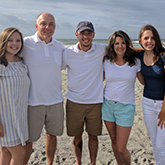A case coming before a federal appeals court could have a financial impact on pastors and churches across the country. The dispute involves a tax provision that allows ordained ministers (of any religion, not just Christians) to exclude a portion of their ministry-related gross income from the federal income tax.
In a lower court, the Freedom From Religion Foundation argued that the Clergy Housing Allowance constitutes an unconstitutional government preference for religion. Last fall, a District judge in Wisconsin agreed with the foundation, but her ruling has been on hold as the case now heads to the U.S. Seventh Circuit Court of Appeals in Chicago.
The Becket Fund for Religious Liberty, arguing in favor of the housing allowance, filed its opening brief (PDF) with the Seventh Circuit last week. Meanwhile, the legal advocacy organization Alliance Defending Freedom is urging pastors and any other church staff members who receive a housing allowance to sign a friend-of-the court brief in the case. Today (Monday, April 23) is the deadline to sign.
Background
As a condition of employment, local churches typically require that ministers live nearby and essentially be “on call” at any time for ministry purposes. In addition, the pastor may be expected to make his home available for meetings and other ministry-related gatherings. Because of these job-related requirements, some churches provide a rent-free parsonage. Others, however, provide a housing allowance and permit ministers to choose their own housing.
Because such an allowance isn’t treated as income for federal income-tax purposes, a pastor’s taxable income is made lower than it otherwise would be. It is this tax-treatment, which directly benefits members of the clergy, that is at issue. (For now, the tax benefit connected with living in a parsonage — which excludes the rental value from taxation — is not being challenged, only the housing allowance.)
In her October 2017 ruling (PDF) striking down the housing allowance provision found in Section 107 of the federal tax code, U.S. District Court Judge Barbara Crabb said the allowance “violates the establishment clause because it does not have a secular purpose or effect.”
CPA and attorney Frank Sommerville thinks that is looking at the housing allowance the wrong way. In a piece written several years ago for Forbes.com, he argues that the allowance is rooted in what’s known as "convenience of the employer" doctrine and therefore isn’t connected solely to a religious purpose, although it does provide “a reasonable accommodation to religious freedom.”
Section 107 is only one part of the larger statutory framework of exclusions for employees who receive employer-assisted housing due the requirements of the job and for the convenience of their employers…. These employees must reside where their employer requires and must frequently use their residence for employer business. Some employees sacrifice amenities that most citizens take for granted, such as long term stability in one locale and privacy.
Sommerville notes that other sections of the tax code authorize non-taxable housing allowances for other types of workers, such as for military personnel (Section 119) and Americans whose jobs require them to live overseas (Section 911).
What is at stake
Christiana Holcomb of Alliance Defending Freedom says if the Appeals court upholds Judge Crabb’s ruling, the effect on the nation’s pastors and churches could be severe.
Of the estimated 375,000 churches in America, as many as half are congregations of [fewer] than 80 members. For many small or poorer churches, this tax exemption makes the difference between existing and extinction…. Without the exemption, some churches would be forced to close and their pastors leave the ministry.
Perhaps that is overstating the possible impact. Unless upheld by the U.S. Supreme Court, an adverse ruling by the Seventh Circuit would affect pastors and churches only in Illinois, Indiana, and Wisconsin. Further, the recently enacted tax law — with its near-doubling of the standard deduction — is now protecting a greater portion of income from taxation. In many cases, that higher deduction would lessen the effect of losing the housing allowance.
Still, a ruling against the housing allowance would inflict financial harm on a great number of clergy, including many retired pastors who receive tax-free retirement-account distributions under the housing allowance provision. An adverse ruling also could bode ill for any subsequent cases involving both taxes and religion.
As noted earlier, Alliance Defending Freedom is urging pastors to weigh in by signing their names to a friend-of-the-court brief (PDF) by sometime today (April 23).









